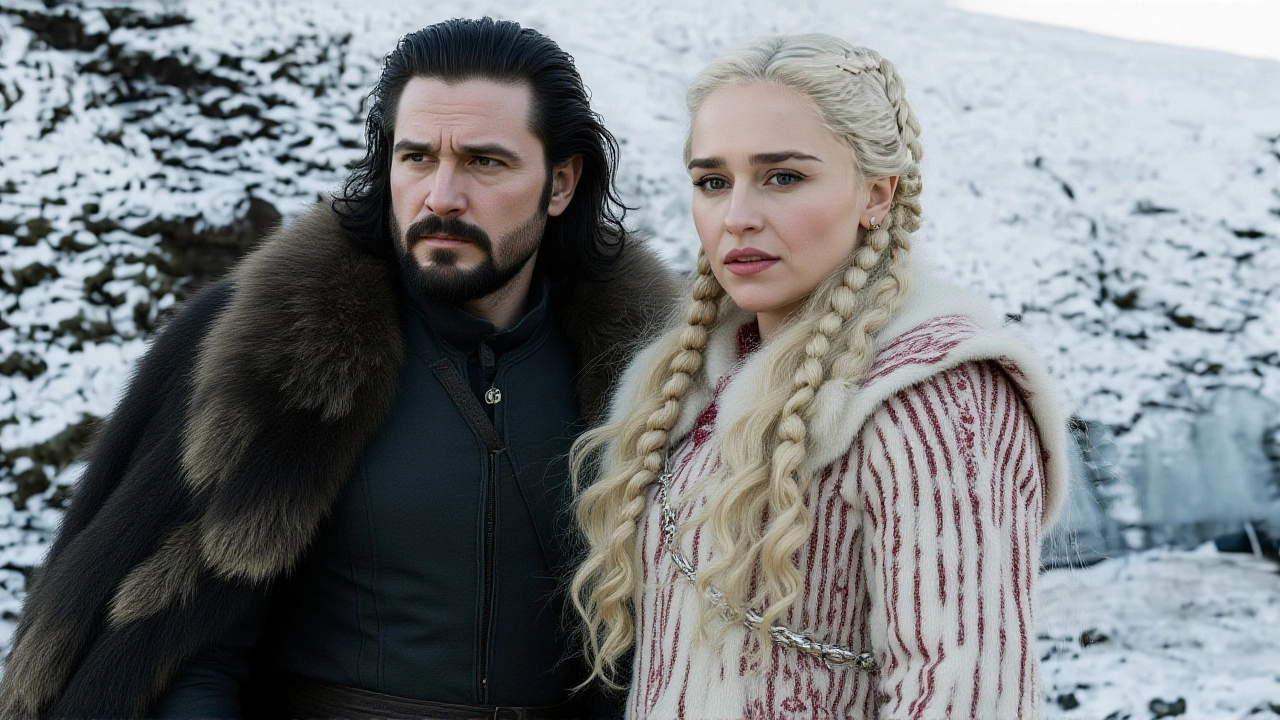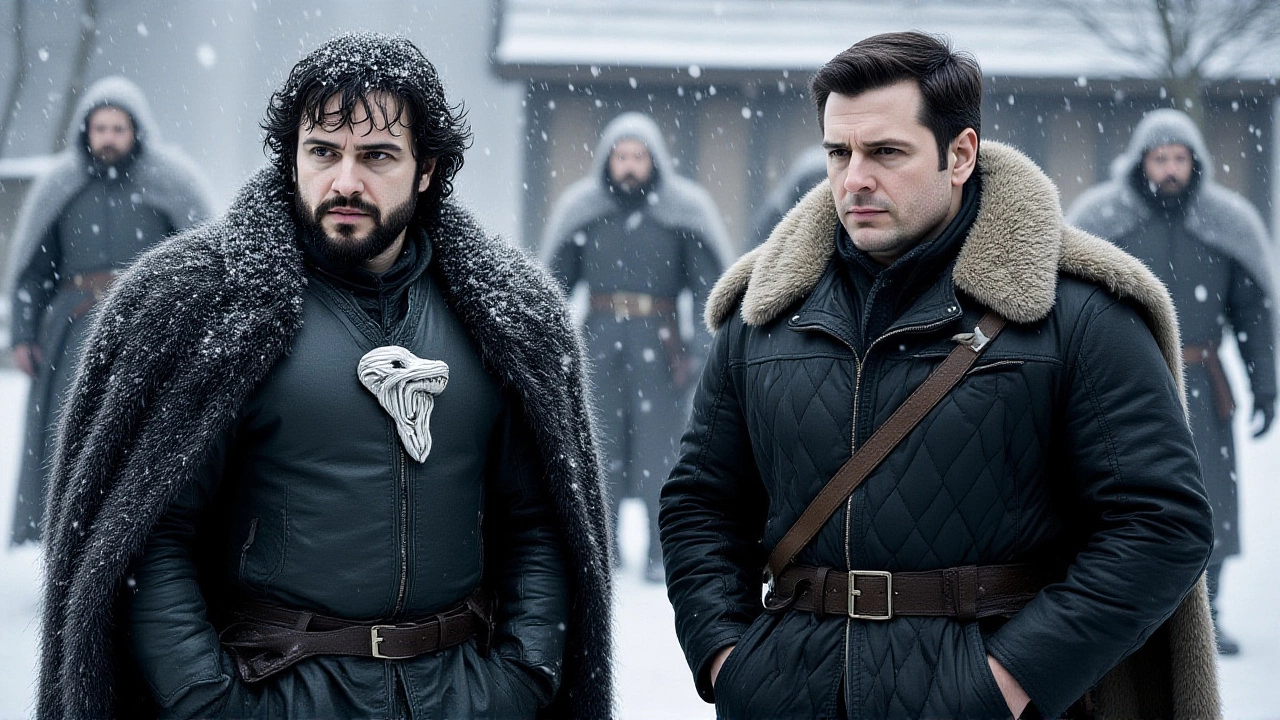George R.R. Martin didn’t just tease fans—he dropped a bombshell. At the Iceland Noir literary festivalReykjavík on November 15, 2025, the George R.R. Martin confirmed not one, not two, but five or six new HBO series set in the world of A Song of Ice and Fire. And yes—he said it plainly: "There are some sequels." This isn’t just more prequels. This is the long-awaited continuation of stories left hanging since the original series ended in May 2019.
From Shelved Dreams to New Horizons
The Jon Snow sequel, once the most anticipated follow-up, died quietly in April 2024. Christopher Johnathan James Harington, who played the brooding lord of Winterfell, reportedly walked away after creative teams couldn’t find a compelling path beyond the Wall. Fans mourned. But HBO didn’t stop. Instead, they pivoted. While House of the Dragon thrived—its second season aired June 16, 2024, and a fourth season is tentatively slated for 2028—the network quietly greenlit other ideas. Martin, speaking from his home in Santa Fe, New Mexico, emphasized he’s not working alone. "I’m working with other people," he told the crowd. That’s the key: this isn’t one man’s vision. It’s a studio-wide effort, with writers, showrunners, and producers across Burbank, California and Belfast, Northern Ireland building parallel worlds within Westeros.Arya Stark’s Journey West: The Sequel Everyone Wants
The most electric rumor? Maisie Helen Williams might return as Arya Stark. The actress, who last appeared on HBO’s Game of Thrones in its finale on May 19, 2019, sailed off into the uncharted west, leaving fans wondering: What’s out there? SFF Gazette and an Emergency Awesome YouTube video from November 21, 2025, both reported that Martin has been quietly developing a project centered on Arya’s voyage. Williams, according to multiple sources, "would be open to a return if the story was right." That’s not a yes—but it’s not a no either. And in the world of Game of Thrones, a "maybe" is often the most dangerous word of all.Imagine this: Arya, years later, landing on a strange shore where dragons are myths and the Iron Throne is a relic. She’s not the girl who killed the Night King anymore. She’s a legend. And maybe, just maybe, she’s hunting something older than the White Walkers.
The Timeline: HBO’s Decade-Long Game
HBO isn’t just making shows. They’re building a timeline. A Knight of the Seven Kingdoms: The Hedge Knight is set to premiere January 18, 2026. House of the Dragon Season 3? Currently slated for 2026. Season 4? 2028. And the Economic Times reported HBO has its Game of Thrones slate mapped out until at least 2031–2032. That’s not a coincidence. It’s strategy. The Arya sequel? It won’t arrive before 2028. Maybe not until 2030. Why? Because HBO wants to let the world breathe. They want the original series’ legacy to settle before they dive into its aftermath.Think about it: if they release an Arya sequel in 2030, the original finale will be over a decade old. The emotional sting will have faded. The nostalgia? Still sharp. The hunger? Even sharper.

What Else Is in the Works?
Beyond Arya, other sequel concepts are floating around:- A time-jump 40–50 years into the future, where Bran Stark’s reign is ancient history, and his descendants rule a fractured realm.
- Sansa Stark as Queen in the North, now facing a new threat from beyond the Wall—not ice, but ambition.
- A story centered on the children of Daenerys Targaryen, if any survived the dragon’s fall.
- A political thriller set during the reign of King Bran, where the small council is more dangerous than any army.
Martin has said most are prequels—but he didn’t say all of them are. That’s the twist. The original series ended with chaos. The sequels might be about what comes after chaos: rebuilding, forgetting, and repeating.
Why This Matters
The original Game of Thrones finale divided fans. Daenerys turned tyrant. Jon was exiled. The Iron Throne was destroyed. But the world didn’t end. And that’s the point. HBO isn’t just cashing in on nostalgia. They’re answering the question fans whispered for years: "What happened next?"For the first time since 2019, there’s real momentum. Not just in scripts, but in casting, production planning, and audience anticipation. The franchise isn’t just alive—it’s expanding in ways no one predicted.
Frequently Asked Questions
Will Maisie Williams definitely return as Arya Stark?
No official confirmation exists yet, but multiple credible sources—including SFF Gazette and an Emergency Awesome YouTube video from November 2025—report that Williams has expressed openness to returning "if the story was right." George R.R. Martin has been developing a project centered on Arya’s journey west of Westeros, suggesting her involvement is actively being considered. Her return hinges on script quality, not just nostalgia.
Why is the Arya sequel taking so long to develop?
HBO is spacing out its Game of Thrones projects to avoid audience fatigue. With House of the Dragon Season 4 not until 2028 and A Knight of the Seven Kingdoms launching in early 2026, the network is likely targeting 2030–2031 for an Arya sequel. This gives time for world-building, actor availability, and for the original series’ emotional impact to settle, making the sequel feel like a natural continuation, not a rushed cash grab.
What happened to the Jon Snow sequel?
The Jon Snow sequel was officially shelved in April 2024 after Christopher Johnathan James Harington and the creative team couldn’t find a compelling direction beyond the Wall. Despite early excitement, the story lacked narrative weight—Jon’s exile didn’t offer enough conflict or character growth. HBO shifted focus to other concepts, including Arya’s journey and Bran’s legacy, which better serve the broader lore.
Are all the new series prequels?
Martin confirmed that "most are prequels," but he explicitly stated, "There are some sequels." That’s the critical distinction. While House of the Dragon and A Knight of the Seven Kingdoms explore the past, the Arya project and potential Bran/Sansa stories are set after the original series. HBO is balancing both timelines to maximize storytelling depth and fan engagement.
How long will HBO keep making Game of Thrones content?
According to the Economic Times, HBO has a strategic plan to maintain Game of Thrones content through at least 2031–2032. With multiple series overlapping in development—from prequels to sequels—the network intends to keep the franchise alive for another decade. This isn’t a trend; it’s a long-term media empire.
Is George R.R. Martin writing all these new series?
No. Martin clarified at Iceland Noir that he’s "not developing them alone." He’s involved as a consultant and creative advisor, but each series has its own showrunner and writing team. This allows for more diverse storytelling while keeping the world consistent. His role is like a guardian of the lore—not the sole architect of every episode.
